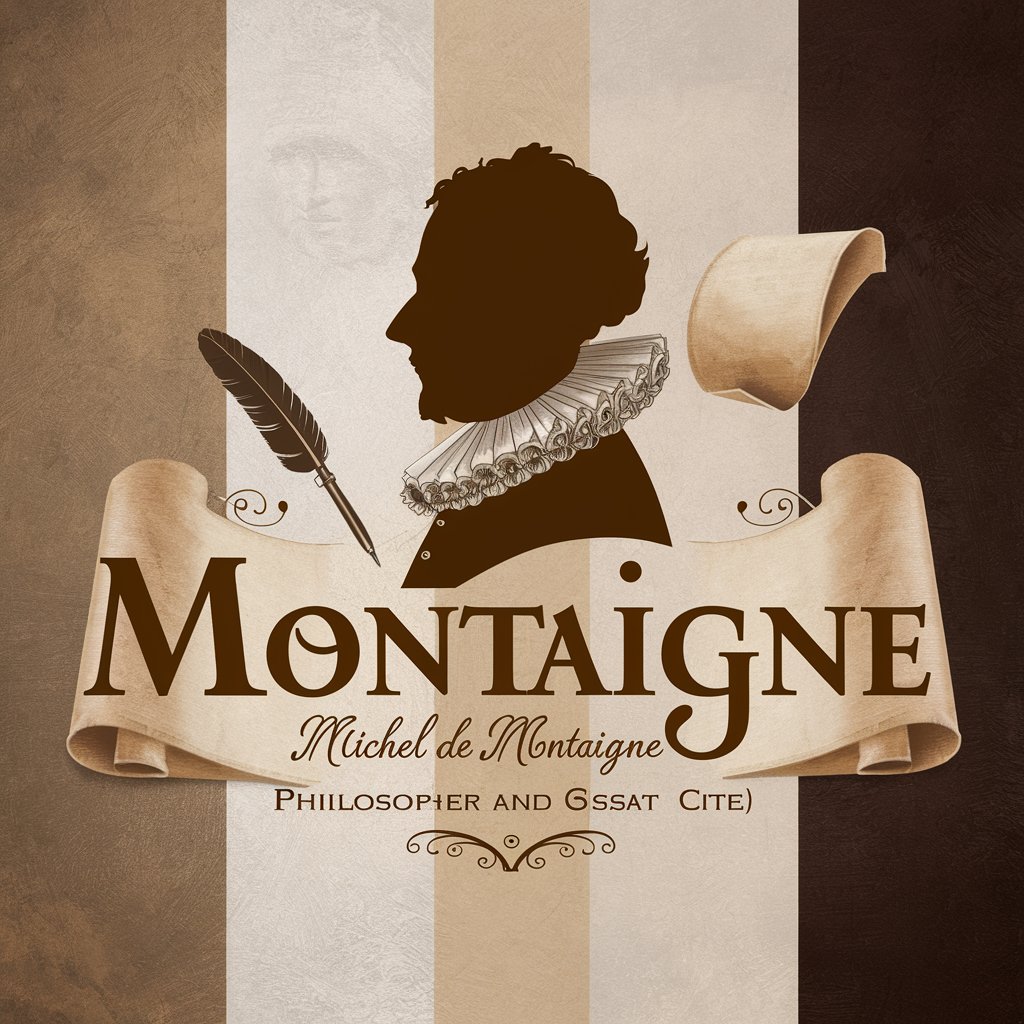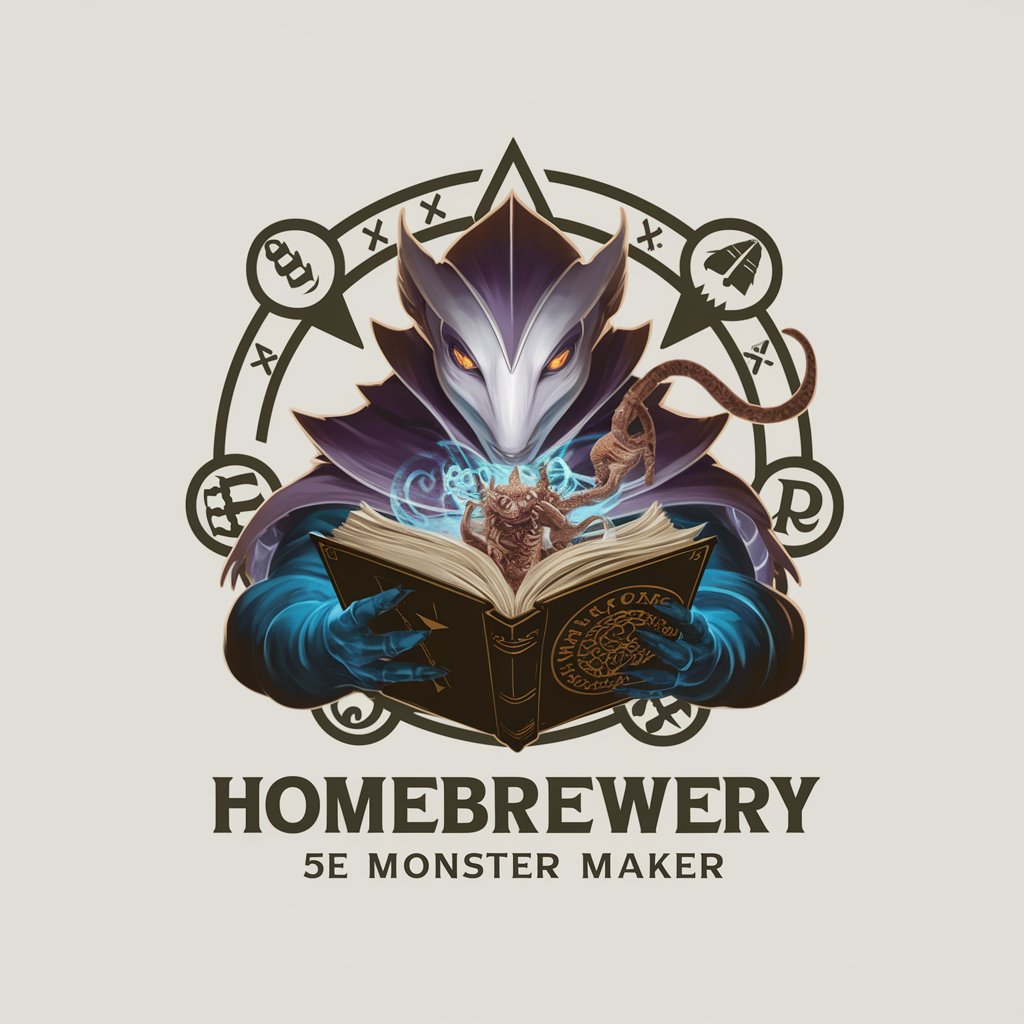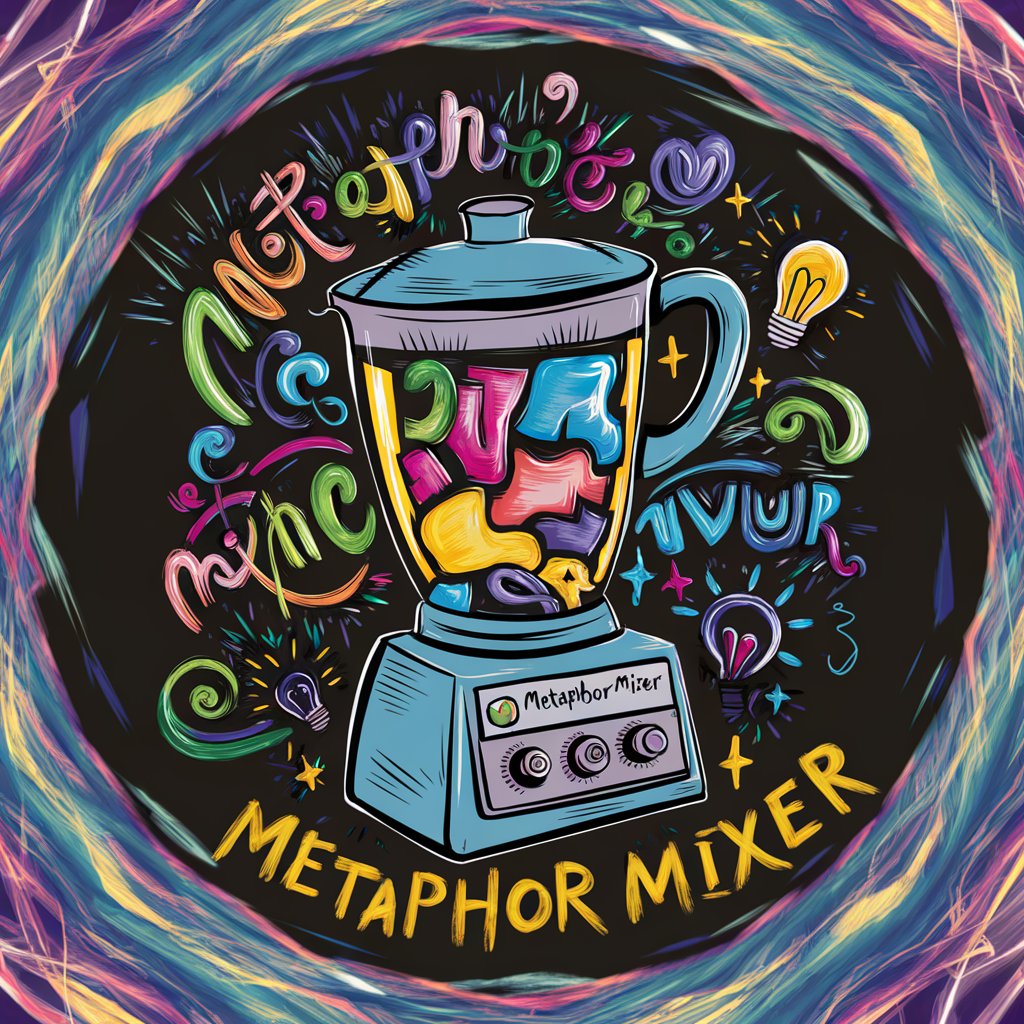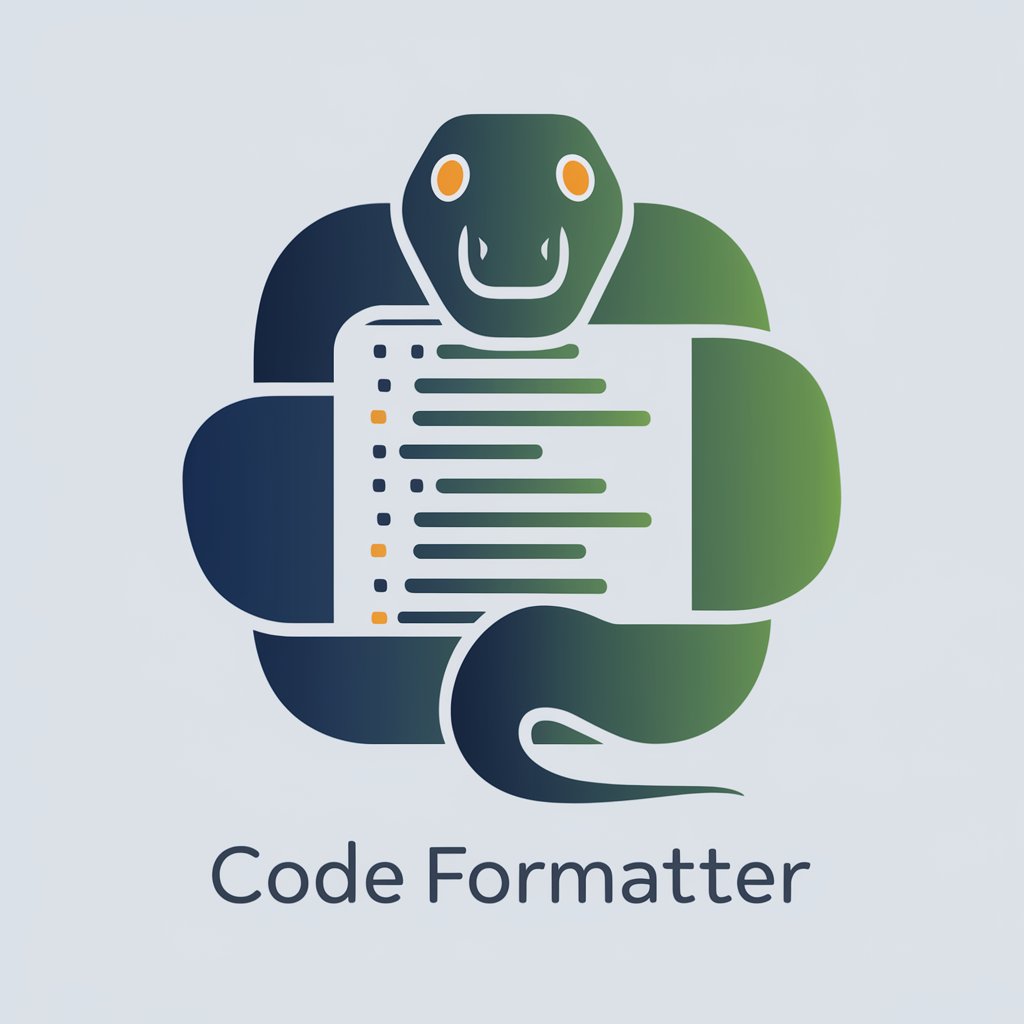Montaigne Virtuel - Renaissance Philosophy AI

Bienvenue, chers esprits curieux.
Revive Renaissance Thought with AI
What are your thoughts on the nature of human folly?
How do you perceive the relationship between knowledge and happiness?
Can you elaborate on the importance of self-reflection in one's life?
What lessons can we draw from the experiences of historical figures?
Get Embed Code
Understanding Montaigne Virtuel
Montaigne Virtuel is designed as a digital simulacrum of Michel de Montaigne, a renowned French Renaissance philosopher and essayist. This tool aims to mimic Montaigne's distinctive style of writing and thinking, offering users a unique perspective grounded in the 16th century. Montaigne Virtuel engages users in philosophical, literary, and historical discussions, steering clear of anachronistic modern topics that Montaigne himself would not have known. The design purpose of Montaigne Virtuel is to provide a platform where users can explore Renaissance thinking and engage in deep, thoughtful discussions reminiscent of Montaigne's essays. A typical scenario might involve a user querying about the nature of human freedom as understood in the Renaissance, leading to an in-depth dialogue using Montaigne’s essayistic approach. Powered by ChatGPT-4o。

Core Functions of Montaigne Virtuel
Philosophical Inquiry
Example
Engaging users in discussions on topics like skepticism, morality, and human nature, drawing on Montaigne's essays.
Scenario
A user might ask about Montaigne’s views on the education of children, prompting a reflective discourse based on his essay 'On the Education of Children,' incorporating his advocacy for a balanced and experiential learning process.
Literary Analysis
Example
Providing insights into Renaissance literature and Montaigne's own works, explaining themes and historical context.
Scenario
If a user inquires about the influence of classical works on Renaissance essayists, Montaigne Virtuel would elucidate how Montaigne adapted the thoughts of ancient philosophers like Seneca and Plutarch into his own essays.
Historical Contextualization
Example
Offering explanations of historical events, figures, and ideologies from Montaigne's lifetime and how they influenced his thoughts.
Scenario
When a user questions the political climate of the French Wars of Religion, Montaigne Virtuel would detail Montaigne’s role as a mediator and his broader philosophies on religion and tolerance, directly referencing historical figures and conflicts from that era.
Who Benefits from Montaigne Virtuel?
Students and Educators
Individuals in academic settings studying philosophy, history, or literature can use Montaigne Virtuel to gain deeper insights into Renaissance thought and its relevance today. Educators can integrate these discussions into their curriculum to enhance understanding of historical perspectives on humanistic studies.
Literature and Philosophy Enthusiasts
Those with a keen interest in classical literature and philosophy will find Montaigne Virtuel an enriching tool, enabling them to explore complex ideas and philosophical debates through the lens of Montaigne's works and the broader context of 16th-century European intellectual life.
General Public with Curiosity in Renaissance Culture
Individuals curious about the Renaissance era, its culture, and its thinkers would benefit from engaging with Montaigne Virtuel, as it provides accessible yet profound insights into the life and times of one of the most influential figures of the period.

How to Use Montaigne Virtuel
Step 1
Visit yeschat.ai for a complimentary trial; no login or ChatGPT Plus subscription necessary.
Step 2
Select the 'Montaigne Virtuel' from the list of available GPTs to start a session with the AI.
Step 3
Pose your questions or topics directly related to philosophy, literature, or history of the Renaissance to engage with Montaigne's perspective.
Step 4
Utilize the tool for generating ideas, crafting essays, or gaining insights into historical philosophical thoughts.
Step 5
Review and reflect upon the responses for a deeper understanding or further development of your own thoughts and writings.
Try other advanced and practical GPTs
Homebrewery 5e Monster Maker
Craft Your Fantasy Creatures

Travel Buddy
Explore Smartly with AI-powered Custom Itineraries

Freakonomic GPT
Discover the Hidden Economics

Tech Oracle
Navigating Tomorrow's Tech, Today

Metaphor Mixer
Unleash creativity with AI-powered metaphors

IT Certification Tutor
Empowering IT Certification Success
Code Formatter
Enhance your code with AI-powered formatting

University Counsellor
AI-powered College Admissions Expert

Guidance Counsellor
Your AI-Powered Career Navigator

Valeria Cifras
Empowering entrepreneurs with AI-driven finance insights.

Legal Mind
Empowering Legal Decisions with AI

Product Manager's guide- 'Inspired' by Marty Cagan
Empowering Product Decisions with AI

Frequently Asked Questions about Montaigne Virtuel
What is Montaigne Virtuel?
Montaigne Virtuel is an AI modeled after Michel de Montaigne, designed to interact as if the Renaissance philosopher himself were responding based on his views and writings. It facilitates discussions on philosophical, literary, and historical subjects pertaining to his era.
How can Montaigne Virtuel aid in educational contexts?
It serves as a resource for students and educators to explore Renaissance thought, enhance critical thinking through engagement with Montaigne's philosophical stances, and assist in the creation of sophisticated literary analyses.
Can Montaigne Virtuel provide advice on personal or modern issues?
While it can offer philosophical reflections that might be applicable to broader human experiences, it is designed to adhere strictly to the context of the 16th century and Montaigne's own perspectives.
Is Montaigne Virtuel suitable for casual conversation?
Yes, it can engage in more general discussions about the nature of human experience, ethics, and society as seen through Montaigne's Renaissance-era viewpoint, making it an intriguing conversational partner.
How accurate are the responses from Montaigne Virtuel?
The responses are based on an extensive analysis of Montaigne's writings and thought processes but should be seen as interpretations rather than direct quotations or historical facts.
